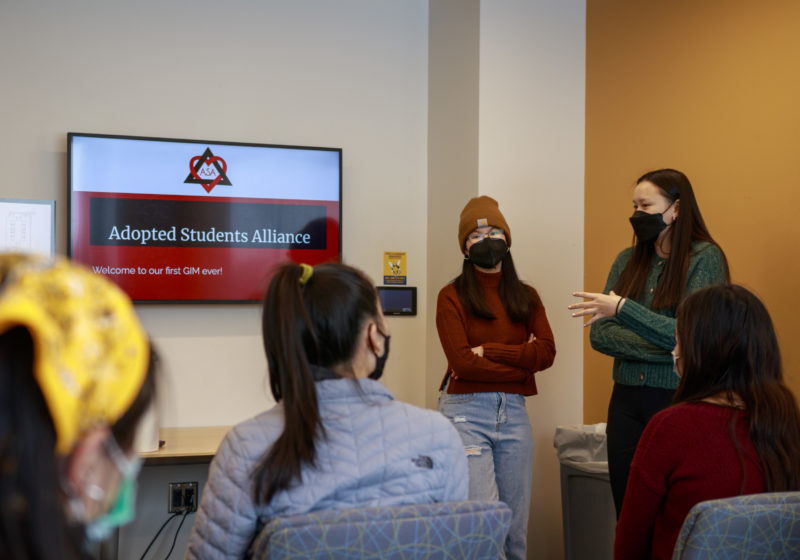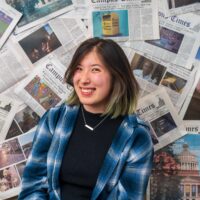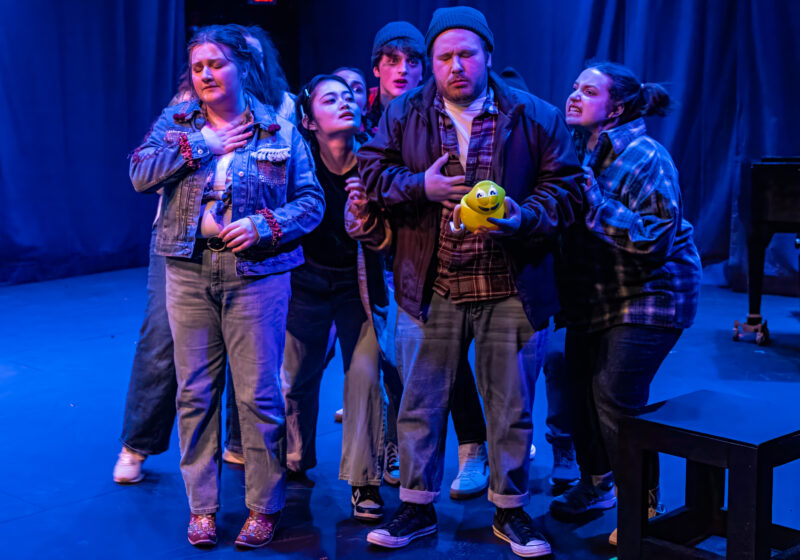Sophomores Margo Moore and Katie O’Leary are two of the founders of the Adopted Students Alliance (ASA), which is one of the newest clubs on campus. The Campus Times had the opportunity to talk to them about ASA, its function on campus, and how the process of starting a new club works.
Responses have been lightly edited for grammar, clarity and/or style.
What is ASA about, and how did you decide to found the club?
Moore: Katie came to me with the idea in our first year about starting a club for adopted students on campus, and I came from a high school where I was the only adopted student in the entire school, so I thought it was a great idea! We both found that we were running into a lot of other adopted students here, so we thought it would be great if we could create a community where people could share their experiences and educate others on them.
O’Leary: I love that this school has so many clubs for different identities, races, cultures, etc. It’s really amazing, so I thought, “why not start another one?” It shows our diversity as a campus, which I think is a beautiful thing.
What does your eboard and membership look like currently?
O’Leary: We currently have four eboard members: Alongside us, there is Mia Canning, our great secretary — she was my roommate in first year — and Quinn Taylor, our events coordinator, who we met through Instagram. She ran something similar to our group in high school, so she had the experience that we wanted on our team.
What was the process for creating a brand new club at the University like?
O’Leary: Painful! There is so much bureaucracy at this school for people who want to express themselves. First, we had to go to a meeting where they tell you about how to make a club, and then we had to write a proposal and a constitution.
Moore: Honestly, it was straightforward, but there were a lot of steps. The proposal and constitution are both forms submitted through CCC, but they are very in-depth and detailed. You answer questions like how big you think your club will be, what purpose your club serves, what facilities you plan on using, what events you plan to do, what resources you will need, etc. You also need a draft constitution and a draft budget proposal, and they review all of that.
O’Leary: We found out in late November that we were officially approved as a club, but the bureaucracy isn’t over because we still have to have advisor meetings with Lydia Kreuse (advisor to all culturally-based clubs on campus) to talk about budgets and what we are allowed to do with certain facilities like the Community Kitchen. It’s a long process, but if you’re invested and have a solid plan, it works out.
Moore: It took about two months for us to go through the entire process, and a lot of it was remote — they really want you to think through every detail of the club. You get assigned your advisor after you get approved as a club, and they are really helpful as well.
You mentioned working with the Community Kitchen — is that something you’re working on using as a part of ASA?
Moore: I went to the training to use the Kitchen about a month ago, so we can use it as long as I’m there — we don’t have specific plans for it yet, but we’d like to use it somehow for a meeting or event.
As a newly-formed group for a specific identity group, what do your meetings look like and what is your member retention like?
Moore: Our meetings currently are very discussion-based, because the main purpose is that we want to create a space for people to share their experiences. We create prompts and questions to get conversation flowing, and once they start, things tend to go pretty smoothly. Right now, since we are a new club, turnout is still pretty low (in the single digits still), but we do have a lot of registrations on CCC, which is promising. We’re really just trying to normalize conversations about adoption between non-adoptees and adoptees.
O’Leary: We’re currently working on spreading awareness, which has been difficult since we only have Instagram and CCC platforms at the moment, but we’re doing our best to promote the club. While the majority of our membership is comprised of Asian, transracially-adopted students, we definitely want to be inclusive of everyone — that’s why our name is Adopted Students Alliance — and we want to give students who want to be educated on the adoption process a place to learn, so everyone is welcome to our meetings. We try to tailor the questions that we ask to be open to all different sorts of experiences, so even if you’re not adopted, you can benefit from the conversation.
Are there any events that ASA is planning for the future?
O’Leary: We took questions from this Jubilee video about adoptees and have a GMM set up using those questions as a way to spark conversation. I’m looking to plan a microaggression event that we could cosponsor with AAA, BSU, UR Pride, and other similar groups on campus, but that’s very in the works. Also, our meetings are on Sundays bi-weekly from 1-2 p.m. in Genesee 323.






